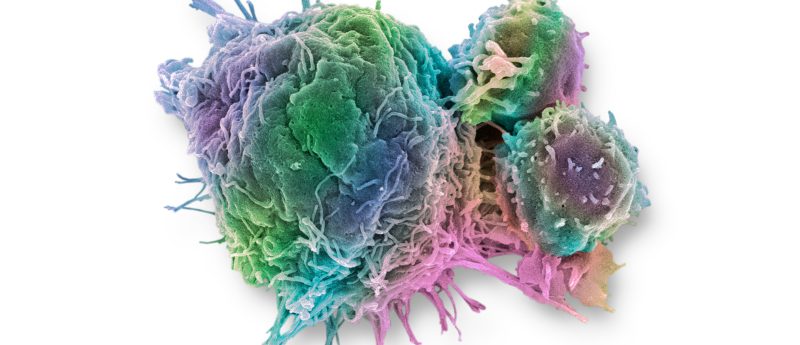3D printed breast cancer tumor models allow investigation of immunotherapeutics

In recent years, 3D printing has become an effective and efficient piece of technology for generating in vitro models to study disease. In the latest developments, a team of researchers from Pennsylvania State University (PA, USA) has successfully 3D bioprinted breast cancer tumors and treated them with CAR-T cells with the aim of better understanding interactions between human immune cells and solid tumors.
The team has recently published research using 3D printing to facilitate the study of breast cancer in Advanced functional materials and Biofabrication. In the research, the team used a relatively novel approach called aspiration-assisted bioprinting to precisely locate the tumors in three dimensions and generate the tissue. This tissue was then formed into a multi-scale vascularized breast tumor model, which the researchers discovered responded well to both chemotherapy and cell-based immunotherapeutics.
The researchers tested the accuracy of the model by delivering doxorubicin, an anthracycline-based chemotherapeutic drug, which is routinely used for treating breast cancer. Following the team’s discovery that the chemotherapeutic drug was effective in the bioprinted tumor, the team collaborated with Derya Unutmaz, an immunologist at Jackson Laboratory (ME, USA) to investigate whether the tumor would be responsive to immunotherapy.
To test this, the researchers employed human CAR-T cells, which had been genetically engineered to recognize and attack an aggressive form of breast cancer cells. After 72 hours of the CAR-T cells being disseminated within the bioprinted tumor, the researchers determined that the CAR-T cells had induced a positive immune response and were attacking the cancer cells.
“This will help us understand how human immune cells interact with solid tumors. We have developed a tool that serves as a clinical test platform to safely and accurately evaluate experimental therapies. It is also a research platform for immunologists and biologists to understand how the tumor grows, how it interacts with human cells, and how it metastasizes and spreads in the body,” explains corresponding author Ibrahim Ozbolat, Associate Professor of Engineering Science and Mechanics at Pennsylvania State University.
Ozoblat also explained that currently there are insufficient pre-clinical platforms for researching novel anticancer drugs. The successful clinical translation of these drugs is impeded by the current reliance upon clinical trials to test their efficacy.
The development of these bioprinted models of cancer could pave the way to novel methods of investigating the microenvironment of different tumor types and understanding the immune response.
You might also like:
- The development of 3D-printed acoustic holograms could allow personalized treatment in patients with neurological diseases
- Novel modular 3D-printed microfluidic system for continuous stem cell harvesting and manufacturing
- Novel 3D culturing system for mesenchymal stem cells